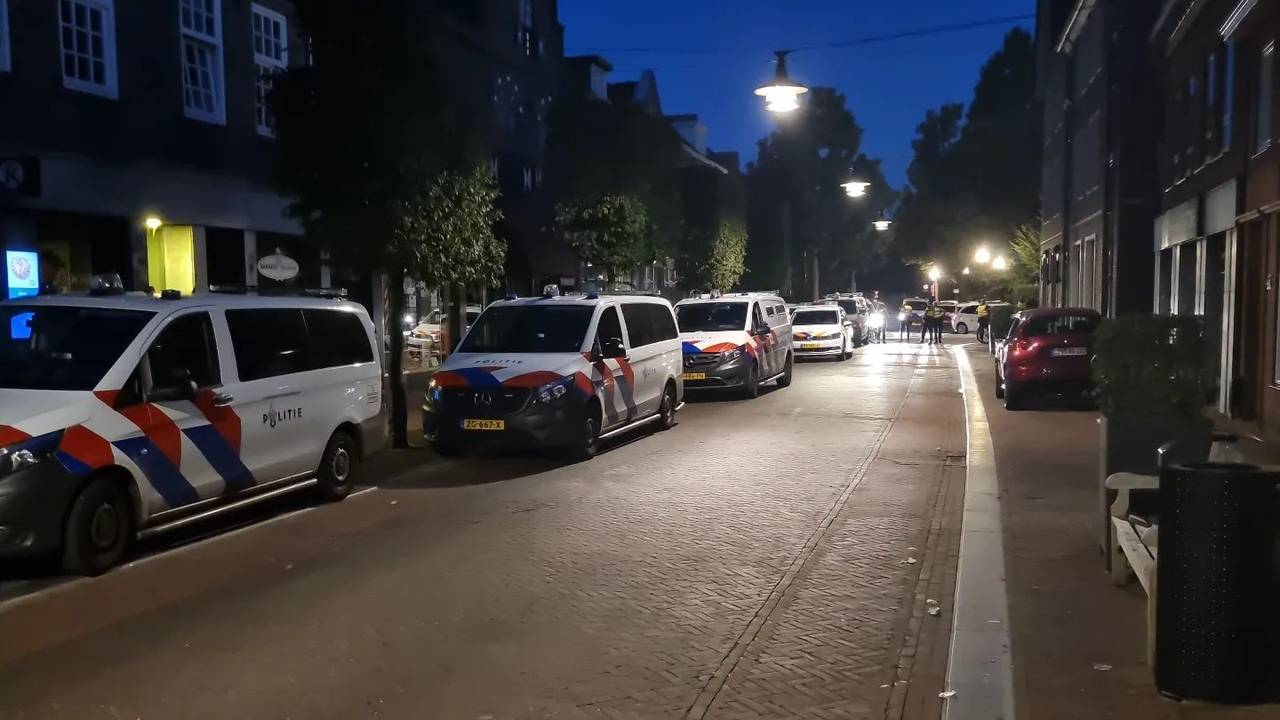The children’s works of art also reflect current world events. No wonder, since the “Plastic People” were also created by 20 children from the Ukraine. A total of 30 kids took part in Krass ev’s summer holiday campaign and dealt artistically with the topics of the environment, waste and waste recycling.
Before starting the design, the material – the rubbish – was collected, photo: Krass
–
The focus of the project was on the upcycling process and the experience of staging something artistic out of rubbish in order to exhibit it in public space. Equipped with tongs, buckets and handcarts, the children went on a district tour through the south of Düsseldorf and collected the legacies of thoughtless people.
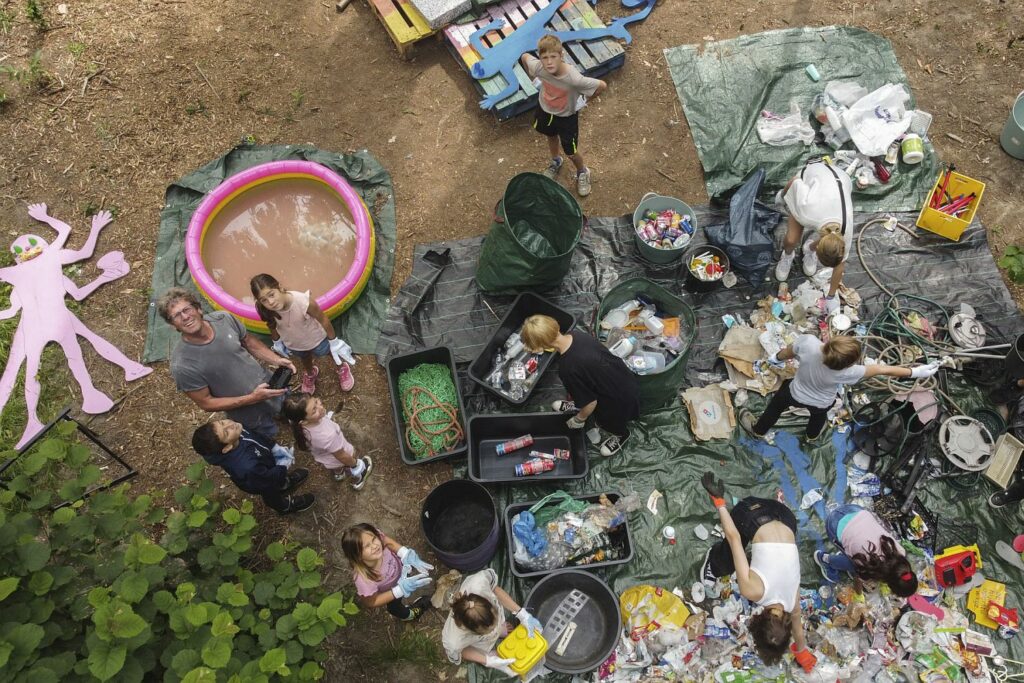
The garbage collected was sorted and cleaned before it was processed, photo: Krass
–
The rubbish was then cleaned and then sculpted into several life-size sculptures as memorials. Not only was the central topic of the climate crisis symbolized, but the war in Ukraine was also processed. The soldier, a figure made from rubbish he had collected himself, carries a machine gun in his hands.
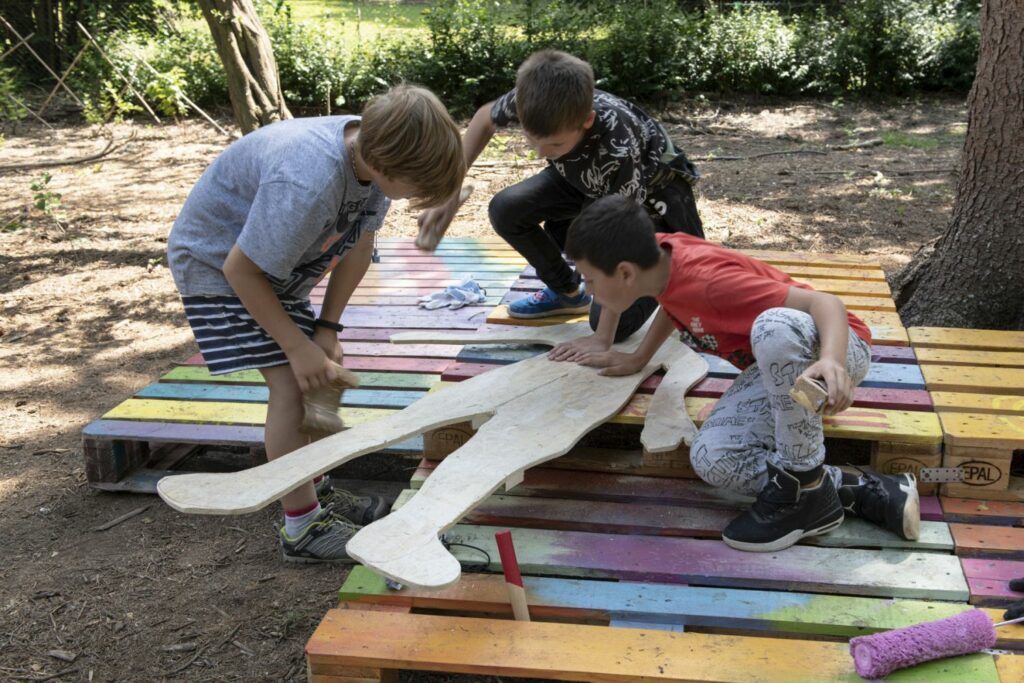
The children sawed out the bodies from wooden boards, which became the basis for the People sculpture
–
“We were on the tracks behind the Stadtwerke Park and on an industrial wasteland in the south of Düsseldorf and collected the rubbish lying around,” reveals Dirk Krüll. “After we sorted and washed them, we created life-size figures from them.” They are now hanging on Kettwiger Strasse at the entrance to Stadtwerke Park as memorials to give more thought to plastic waste, environmental pollution and the climate crisis.
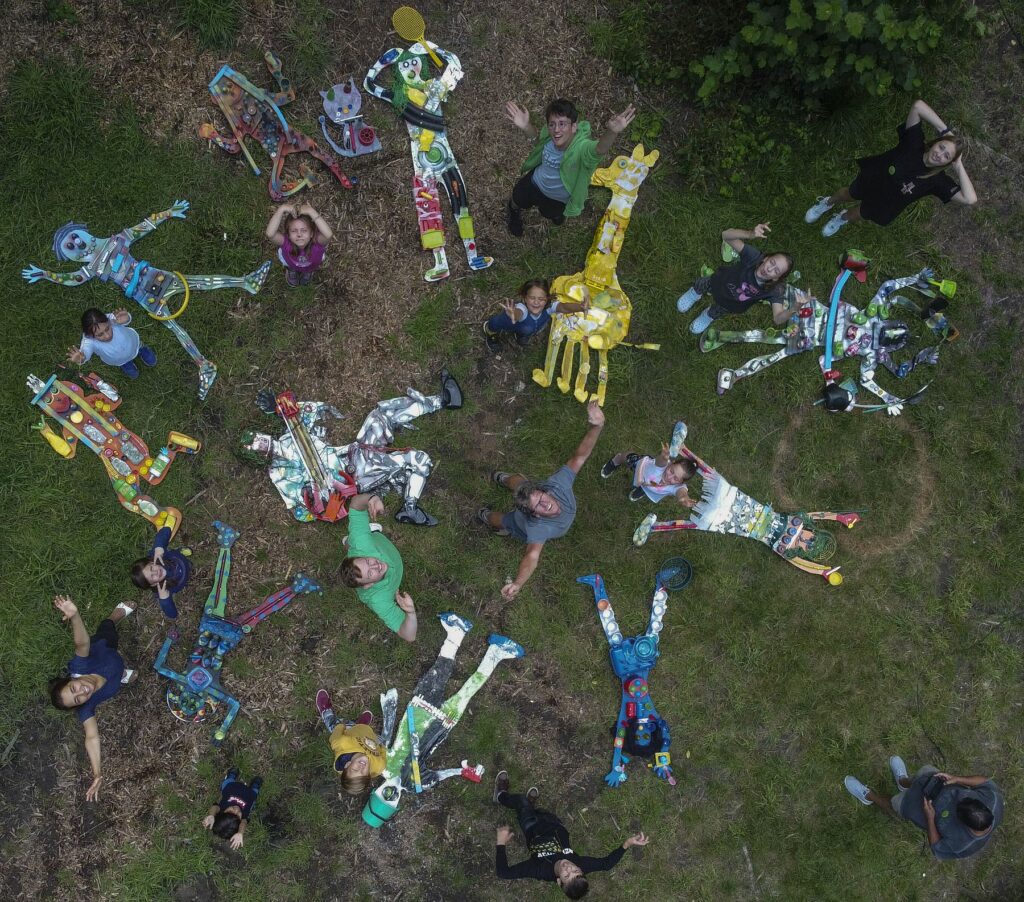
The Plastic People are done! Photo: Krass
–
The project was led by artist Dirk Krüll. “Artistically, I’m very satisfied,” judged Krüll. “The figures are the result of children’s creativity. We do give instructions from time to time, but we don’t limit them by doing so. In principle, we let the children do it.”
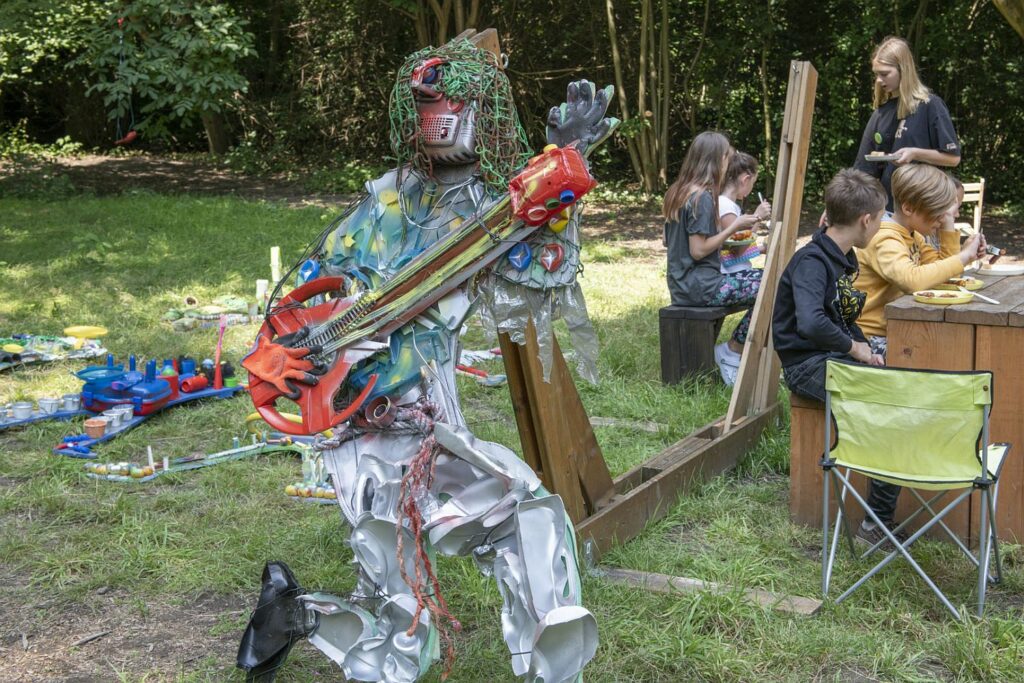
Garry Glitter is ready to mount on the Stadtwerke fence
–
But the children also learned something during the holidays. An employee of the Düsseldorf waste disposal company AWISTA explained the “dual system” to the children. The children were made aware of the problem of dealing with plastic waste in a playful way and put their new knowledge directly into artistic practice.
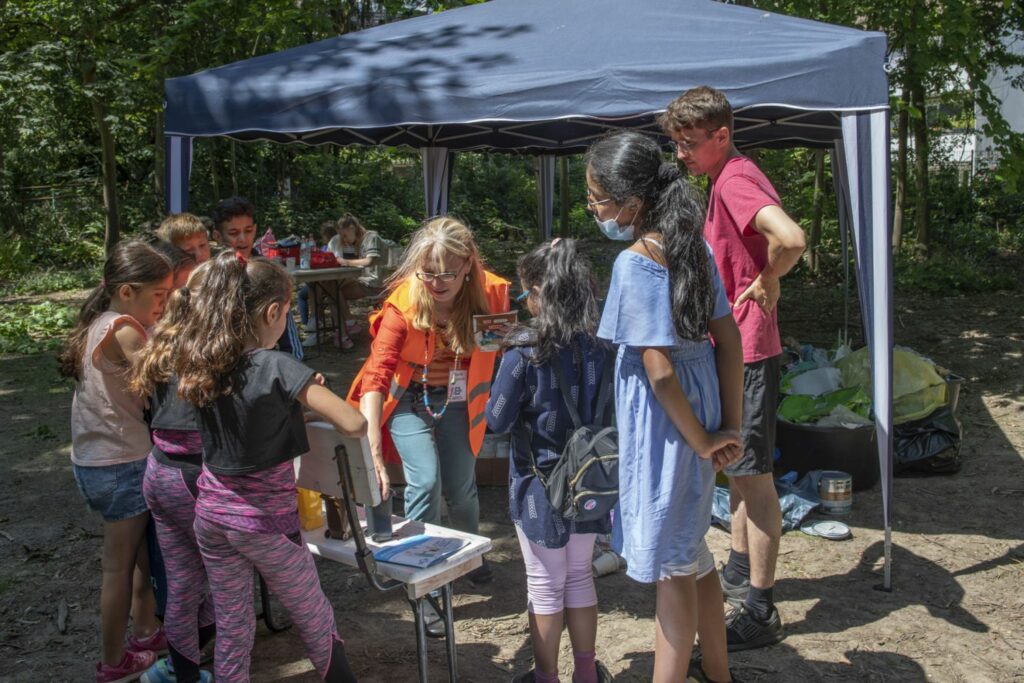
Learning unit with the Awista employee
–
Education is the key to social participation and personal future opportunities in our society, emphasizes Krass founder Claudia Seidensticker. KRASS eV therefore supports children and young people worldwide with cultural projects to get free access to cultural offers and thus to be promoted on different levels.
–

